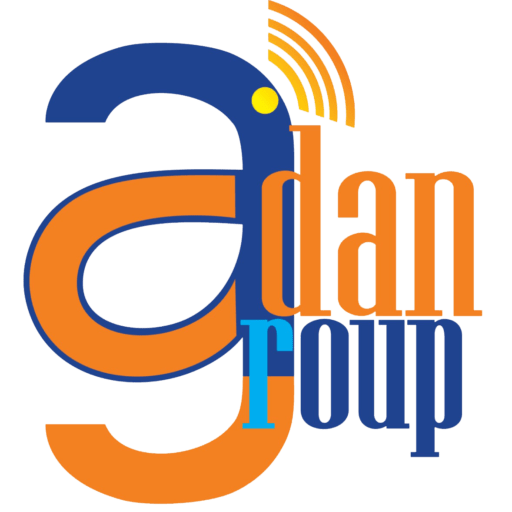- Resilient Growth Takes Hold: Ghanas economic landscape shifts with impactful ghana news today & innovative policy changes promising a brighter future for all.
- Economic Growth and Diversification
- Infrastructure Development and Investment
- Addressing Infrastructure Gaps
- Digital Transformation and Innovation
- Fiscal Policy and Economic Stability
- Debt Management and Sustainability
- Financial Sector Stability
- Social Development and Human Capital
Resilient Growth Takes Hold: Ghanas economic landscape shifts with impactful ghana news today & innovative policy changes promising a brighter future for all.
Ghana is experiencing a period of significant economic transformation, and today’s developments are particularly noteworthy. The culmination of factors, ranging from prudent fiscal policies to strategic investments in key sectors, define the recent ghana news today and are starting to yield positive results. The country’s commitment to diversifying its economy away from traditional reliance on commodities like cocoa and gold is becoming increasingly evident and is attracting international attention. This shift is enabling greater resilience to global economic shocks and fostering sustainable growth. A focus on infrastructure development, alongside initiatives to improve the ease of doing business, are critical components of this progress.
Economic Growth and Diversification
Recent economic indicators suggest a strong upward trend in Ghana’s Gross Domestic Product (GDP). This growth is not solely reliant on favorable commodity prices but is increasingly driven by the services sector, particularly in telecommunications, finance, and tourism. The government’s emphasis on promoting local entrepreneurship and fostering a conducive environment for small and medium-sized enterprises (SMEs) is also playing a vital role in job creation and economic diversification, underpinning the overall positive narrative.
A crucial aspect of this diversification is the expansion of the manufacturing sector. Initiatives to support value-added processing of agricultural products and the development of light industries are gaining traction, reducing the country’s dependence on raw material exports. This shows a forward-thinking approach in fostering long-term self-sufficiency and economic prosperity. However, challenges remain in terms of access to financing, infrastructure limitations, and skills gaps.
Here’s a snapshot of Ghana’s key economic indicators:
| Indicator | 2022 | 2023 (Estimate) | 2024 (Projected) |
|---|---|---|---|
| GDP Growth Rate | 3.4% | 3.8% | 4.5% |
| Inflation Rate | 31.7% | 25.0% | 15.0% |
| Unemployment Rate | 13.9% | 13.5% | 12.8% |
| Foreign Direct Investment (FDI) | $2.2 Billion | $2.5 Billion | $3.0 Billion |
Infrastructure Development and Investment
Significant investments in infrastructure are underway across Ghana, from road networks and power generation projects to port expansions and digital infrastructure. These investments are crucial for facilitating trade, attracting foreign investment, and improving the overall quality of life for citizens. The ongoing expansion of the Tema Port, for instance, is projected to significantly increase the country’s capacity to handle cargo traffic and boost regional trade.
The government is also prioritizing the development of renewable energy sources, including solar and wind power, to reduce reliance on fossil fuels and promote sustainable energy solutions. These initiatives are aligned with global efforts to combat climate change and support a cleaner environment. Public-private partnerships (PPPs) are being actively encouraged to leverage private sector expertise and capital to accelerate infrastructure development.
Addressing Infrastructure Gaps
Despite progress, infrastructure gaps remain a significant challenge for Ghana. Limited access to reliable electricity, inadequate road networks in rural areas, and insufficient water infrastructure continue to hinder economic growth and development. Targeted investments and strategic planning are essential to address these gaps effectively. The government’s commitment to expanding access to essential services should be backed up with effective governance and quality control to ensure long-term sustainability.
To prioritize infrastructure spending these projects have been crucial as of ghana news today:
- Expansion of the Kumasi Airport
- Construction of the Pwalugu Multipurpose Dam
- Upgrade of the Eastern Railway Line
- Development of the Accra Metropolitan Area Roads
Digital Transformation and Innovation
Ghana is embracing digital transformation as a key driver of economic growth and social development. The government is investing in initiatives to expand internet access, promote digital literacy, and foster innovation in the technology sector. The country’s growing tech ecosystem is attracting entrepreneurs and investors, creating opportunities for job creation and economic diversification. The launch of the Ghana Card, a national identity card, has streamlined access to public services and facilitated financial inclusion.
However, bridging the digital divide remains a challenge. Ensuring equitable access to digital technologies for all citizens, particularly those in rural areas and marginalized communities, is crucial. Investments in digital infrastructure, affordable internet access, and digital skills training are essential. Furthermore, the government needs to create clear regulatory frameworks and policies to encourage innovation and protect consumers in the digital space.
Fiscal Policy and Economic Stability
Ghana’s economic stability has been underpinned by prudent fiscal policies aimed at controlling inflation, reducing the budget deficit, and maintaining a sustainable debt profile. The government’s commitment to fiscal discipline has been recognized by international financial institutions, such as the International Monetary Fund (IMF). However, challenges remain in managing public debt and ensuring long-term fiscal sustainability.
Recent efforts to improve revenue mobilization, streamline public expenditure, and strengthen financial regulation are essential for maintaining economic stability and fostering investor confidence. The emphasis on transparency and accountability in public financial management is also crucial for building trust and ensuring responsible stewardship of public resources.
Debt Management and Sustainability
Managing Ghana’s public debt burden is a critical priority. The country’s debt-to-GDP ratio has increased in recent years, posing risks to economic stability. The government is actively pursuing strategies to restructure its debt, negotiate favorable terms with creditors, and improve debt management practices. Prudent borrowing policies and a commitment to fiscal discipline are essential for ensuring long-term debt sustainability.
Ghana’s current debt profile, along with projections, is as follows:
- Total Public Debt (December 2023): GHS 635.2 billion
- Debt-to-GDP Ratio (December 2023): 77.2%
- External Debt: 60% of total debt
- Domestic Debt: 40% of total debt
Financial Sector Stability
Maintaining a stable and resilient financial sector is crucial for supporting economic growth and development. The Bank of Ghana has implemented a range of measures to strengthen financial regulation, enhance supervision, and promote financial inclusion. These measures include increasing minimum capital requirements for banks, introducing stricter risk management guidelines, and promoting digital financial services. The aim is to create a robust and efficient financial sector that can effectively support the needs of the economy.
However, challenges remain in addressing non-performing loans, strengthening corporate governance, and promoting financial literacy. Continued reforms and vigilance are essential to maintain financial sector stability and protect depositors’ interests. Furthermore, the government needs to foster a conducive environment for fintech innovation and competition to drive financial inclusion and efficiency.
Social Development and Human Capital
Investing in social development and human capital is essential for ensuring inclusive growth and improving the quality of life for all Ghanaians. The government is prioritizing investments in education, healthcare, and social protection programs. These investments are aimed at improving access to quality education, strengthening the healthcare system, and providing a safety net for vulnerable populations.
The Free Senior High School policy, for example, has significantly increased access to secondary education. However, challenges remain in ensuring quality and equity in education. Investing in teacher training, improving school infrastructure, and promoting skills development are essential for preparing the workforce for the demands of the 21st-century economy.
Ghana is making noticeable steps forward in key elements, highlighting positive ghana news today. Continued commitment is vital to secure long term growth.




